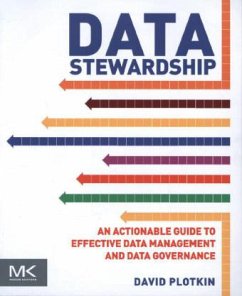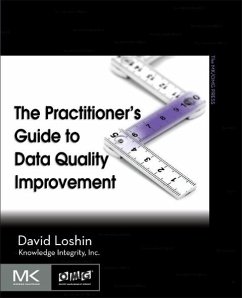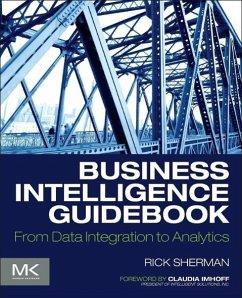
Master Data Management
Versandkostenfrei!
Erscheint vorauss. 12. August 2027
35,99 €
inkl. MwSt.
The volume of data in companies keeps on growing, and most often each business unit, such as marketing, sales, HR, accounting, production, etc., manages its own data. Then the question of how to optimize the interaction and synchronization of this data and how to guarantee its quality - in terms of consistency, regular updates, absence of duplicates, etc. - becomes essential. What is necessary is a vision and a process for how to avoid the problem of isolated data islands and how to integrate the data into a company-wide information pool?The aim of this book is to outline methods and solutions...
The volume of data in companies keeps on growing, and most often each business unit, such as marketing, sales, HR, accounting, production, etc., manages its own data. Then the question of how to optimize the interaction and synchronization of this data and how to guarantee its quality - in terms of consistency, regular updates, absence of duplicates, etc. - becomes essential. What is necessary is a vision and a process for how to avoid the problem of isolated data islands and how to integrate the data into a company-wide information pool?The aim of this book is to outline methods and solutions for better data management, and, more particularly, the management of master data, i.e., data structuring numerous processes and used in several applications. To this end, the authors explain the notion of "Master Data Management" (MDM), based on the essential "point of truth" concept. Their presentation is organized into three parts: Part I outlines the basic concepts, requirements and issues relating to data management. Part II details best practices, the architectures and solutions for improving data management, focusing in particular on the MDM concept. Finally, Part III details control methods and organizations based on the key concept of data governance.This book targets IS responsibles who want to better manage their company's data as well as business managers or enterprise architects who want to analyze interdepartmental processes and applications. They will find much useful information on how to transform a strategic data-related vision into reality, whether it is a business-driven vision, e.g., focusing on customer-related processes, or an IT-driven vision, e.g., aiming at service-oriented architectures.













